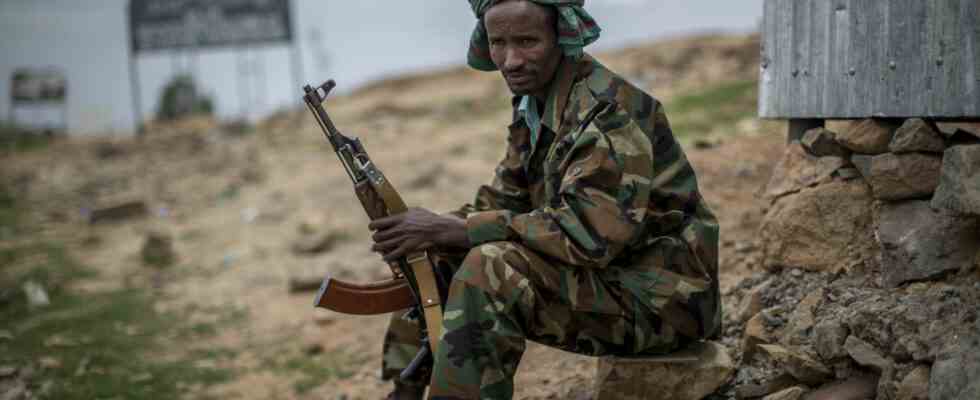Less than forty-eight hours before the anniversary date of the conflict that has pitted them for two years, the Ethiopian federal government and the rebel authorities of Tigray concluded on Wednesday, November 2 in Pretoria an agreement of “cessation of hostilities” and of “methodical disarmament”.
Among the main points of the declaration signed by the Ethiopian government and the Tigray People’s Liberation Front (TPLF), the two parties commit to “ safeguard the sovereignty and territorial integrity of Ethiopia”. The FPLT fighters will be “disarmed, demobilized and reintegrated” following a specific program. Both parties have agreed “to implement transitional measures comprising the restoration of constitutional order in the Tigray region, a framework for the settlement of political disputes and a political framework for transitional justice in order to ensure accountability, truth and reconciliation have announced the Ethiopian authorities”.
The Ethiopian government “will strengthen its collaboration with humanitarian organizations, in order to continue to deliver aid to all those in need”. He will also “continue its efforts to restore public services and rebuild infrastructure in all communities affected by the conflict”.
A “capital advance” according to Washington
The head of the Ethiopian government delegation, Redwan Hussein, national security adviser to the Prime Minister, Abiy Ahmed, hailed “constructive engagement” belligerents “to put an end to this tragic episode”.
This agreement shows “the will of both parties to leave the past behind”estimated for his part Getachew Reda, who led the delegation of the rebel authorities of Tigray, saying he hoped that “both parties honor their commitments”.
The international community welcomed the peace agreement. This is’“a really welcome first step”, said the spokesman for the Secretary-General of the United Nations (UN), Antonio Guterres. The African Union, for its part, wants to believe in “beginning of a new era for Ethiopia”.
“We salute the major breakthrough made in Pretoria today,” affirmed for his part the American Secretary of State, Antony Blinken who was also delighted to “the unhindered delivery of humanitarian assistance and protection of civilians that should result from the implementation of this agreement”.
One of the “world’s deadliest conflicts”
Since October 24, delegations from the Ethiopian federal government and the rebel authorities in Tigray had begun peace talks in Pretoria, under the auspices of the AU, to find a solution to the war that has ravaged the north of the country for two years.
During the discussions, fighting continued in Tigray, where Ethiopian federal troops have been advancing since mid-October, supported by the Eritrean army and by forces and militias from the neighboring Amhara and Afar regions.
Supported by artillery and aerial bombardment, the Ethiopian army and its allies recently seized several towns importance of the rebel region since the resumption of fighting on 24 August.
The press does not have access to northern Ethiopia and communications there operate haphazardly, making independent verification impossible. The toll of the conflict, marked by countless abuses and largely taking place behind closed doors, is unknown, but the International Crisis Group (ICG) and Amnesty International (AI) describe it as “one of the deadliest in the world”.
“All parties are responsible for serious violations, including war crimes and crimes against humanity, including the summary executions of hundreds of people and sexual violence against women and girls”Amnesty International said on Wednesday.
Two million displaced
The war has also caused a humanitarian catastrophe in northern Ethiopia, displacing more than two million Ethiopians and plunging hundreds of thousands into near-famine conditions, according to the UN.
The UN Human Rights Council on Friday 28 October “Painted a very bleak picture” the situation in Tigray, almost cut off from the world, referring in particular “the obstruction of access to food, medicine, and basic services”. Tigray has been largely without electricity, telecommunications and banking services for more than a year.
Our survey (December 2021):

